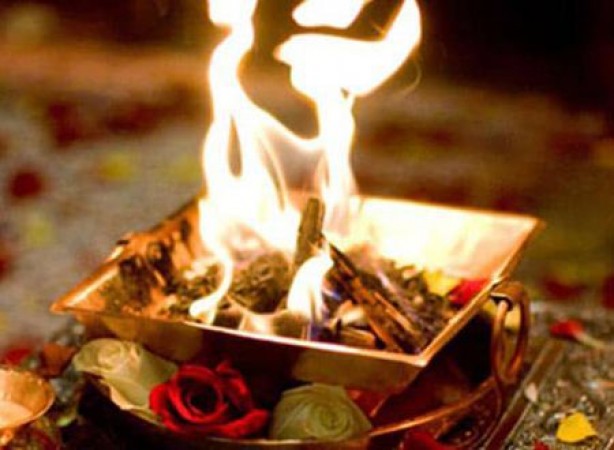
Yajna, an ancient Vedic ritual, holds profound significance in Hinduism and Indian culture. It is a sacred act of offering to the divine, where various materials such as ghee (clarified butter), grains, flowers, and other items are ceremonially offered into the sacrificial fire. Yajna symbolizes the spirit of sacrifice, devotion, and the harmonious relationship between humanity and the divine forces. The origin of Yajna can be traced back to the ancient Vedic texts, particularly the Rigveda, which is one of the oldest sacred scriptures in the world. The Vedic sages considered Yajna as a means to establish a connection with the gods and invoke their blessings. The act of offering substances into the fire was believed to carry the offerings to the celestial realms, where the deities reside. Yajna is not merely a physical ritual but also holds profound spiritual and philosophical implications. It represents the concept of selfless action (Karma Yoga), where individuals perform their duties without attachment to the results. By engaging in Yajna with a sense of devotion and surrender, practitioners strive to transcend their individual desires and offer their actions to the divine will.
The ritual of Yajna involves the chanting of Vedic mantras and the performance of specific gestures (mudras) and actions. The rituals are meticulously performed by priests (Brahmins) who are well-versed in the Vedic scriptures and the intricacies of Yajna. The offerings made during the ceremony are believed to please the gods and attract their blessings for the welfare of all. The significance of Yajna extends beyond the immediate material offerings. The fire, often considered a purifying element, symbolizes the transformation of the offerings into spiritual energy that sanctifies the environment and purifies the mind and soul. The process of Yajna is thought to create a positive and harmonious atmosphere, fostering unity and well-being in the community. In Hindu cosmology, Yajna is also associated with the concept of the cosmic order or the rta. It represents the idea that the universe operates in harmony and balance, and performing Yajna is believed to uphold this cosmic order. The act of giving back to nature and the gods through Yajna is seen as a way to maintain harmony in the ecosystem and promote ecological balance.
Yajna also finds relevance in social and cultural practices. In ancient times, Yajna was often performed to mark auspicious occasions such as weddings, housewarming ceremonies, and other significant life events. It was seen as a way to invoke blessings for prosperity, longevity, and happiness for the individuals involved. Apart from its religious and spiritual significance, Yajna also plays a crucial role in promoting a sense of community and unity. Large-scale Yajnas are organized during festive occasions and gatherings, where people from various backgrounds come together to participate in the ritual, fostering a sense of togetherness and communal harmony.
In conclusion, Yajna holds an integral place in Hinduism, representing the spirit of sacrifice, devotion, and harmony. Rooted in ancient Vedic traditions, Yajna symbolizes the connection between humanity and the divine, fostering a sense of selfless action and surrender to the cosmic order. Its spiritual, social, and cultural significance continues to influence Indian society, highlighting the value of giving back to nature and the gods while promoting unity and well-being in the community.
Also read - Kapila: The Divine Sage and the Founder of Samkhya Philosophy
Mohini Avatar of Vishnu: The Enchanting Feminine Form of the Divine
Haryana Violence: VHP plans protests in various parts of Delhi